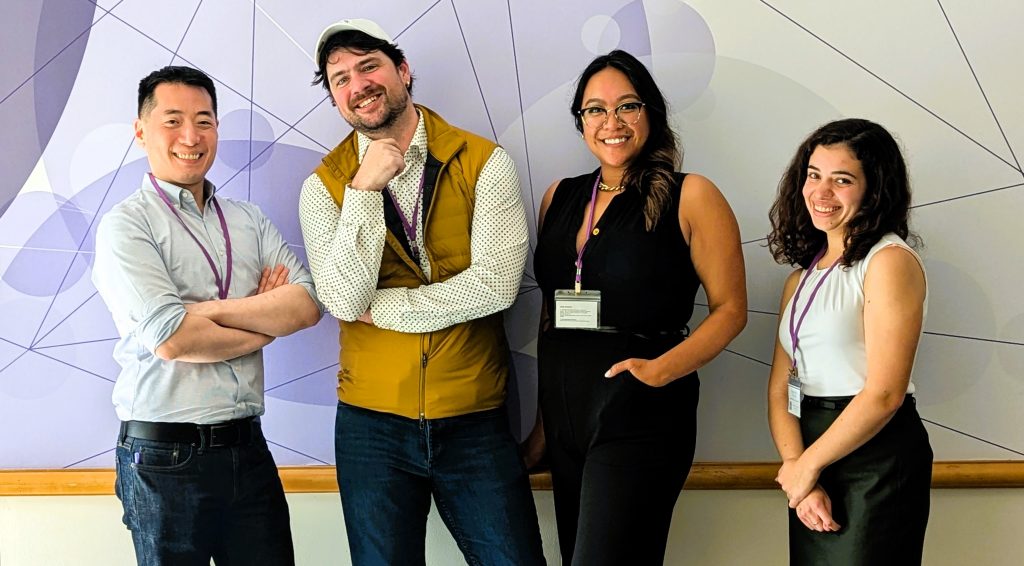
Deciding against a career in academics can leave some STEM-focused predoctoral students in a quandary—where do you begin to find a job that matches your skills and interests? To help address this concern, four alumni from the Chemistry of Life Processes Institute’s NIH Graduate Training Program, together with graduates of other National Institute of General Medical Sciences (NIGMS)-funded training programs, returned to campus to shed light on these concerns at the 2024 ‘BioProfessionals Career Forum’. The event featured panel discussions, talks and networking opportunities that revealed a variety of options for graduate students interested in corporate, industry, government and other non-academic careers.
Despite their diverse career paths in science writing, biotech sales, patent law, and drug product analytics, former CLP trainees Allessandra DiCorato, Jennifer Ferrer, Eric Lee, and Tim Toby all agree that their graduate school training played a crucial role in their development as scientists and equipped them exceptionally well for their current roles.
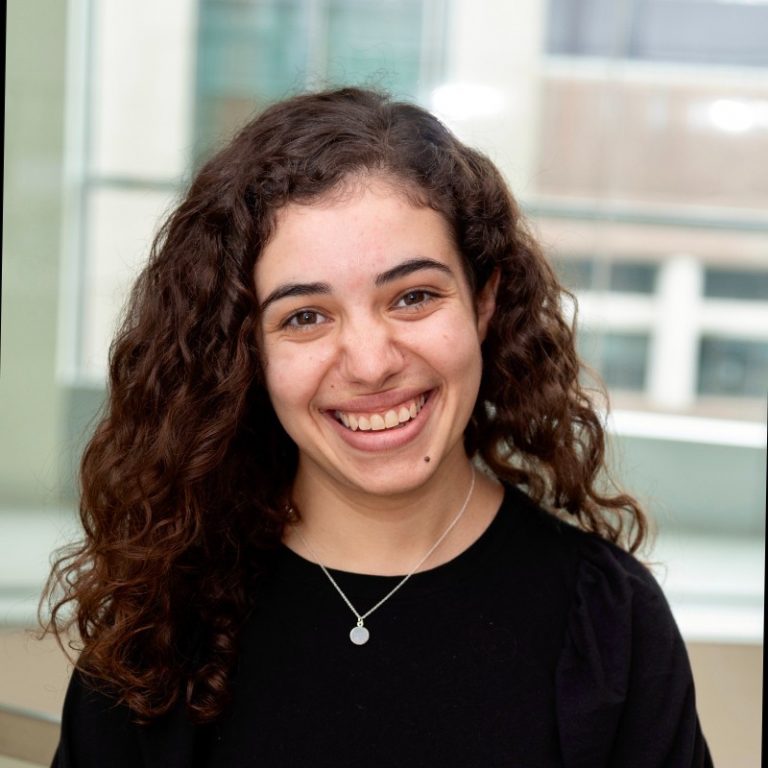
Allessandra DiCorato, PhD, ‘21
Science Writer, The Broad Institute of MIT and Harvard
PhD in Materials Science and Engineering (Northwestern)
What led you to your current career?
I had always been interested in writing, but never really saw how it could be combined with science. I was also interested in science and had always really liked research. In graduate school I took some journalism classes through Medill—that’s where I found science writing and really loved it. After taking a few of those classes, I did the AAAS Mass Media Science & Engineering Fellowship and worked as a science journalist for a summer. After that, I knew I wanted to be a science writer after I defended. I really liked learning about different kinds of science and talking to a whole range of scientists about the new research that they were doing. It was exciting.
What are your job responsibilities?
I write news stories, press releases, features and profiles of some of the scientists at the Broad. I write Q&As and other kinds of stories about the research that’s happening at the Broad.
What do you like best about your job?
I like the challenge of writing, and that it’s different every day. I get to learn new things and ask new questions and then try and find a cohesive way to present that to other people.
How did the CLP training program help prepare you for your role?
Being a part of CLP exposed me to a lot of research outside my department, which is something that I didn’t get very much as a MSE grad student. At the Broad, I write a lot about biology and human health and that’s not something that my primary group had as much experience in. However, the collaborative project that I worked on for CLP looked at an arsenic-based treatment for brain cancer. Having a dual mentor allowed me to do a different kind of research project that I wouldn’t have been able to do in just one lab. That project gave me a lot of familiarity with the subject matter that I write about now.
The talks from other fellows and invited speakers also introduced me to a lot of research in the chemical biology/human health realm. As a science writer you need learn very quickly about fields that aren’t your own or that you don’t have any training in. Attending those talks prepared me to ask questions of scientists in new fields.
What career advice would you give to current trainees?
Everyone says, “follow what interests you,” but I would also add think about what role in the world you want to play. There are a lot of ways in which research experience can be applied to other careers. If those are what interest you, there are ways to try out those careers and prepare yourself for them while still being a researcher.
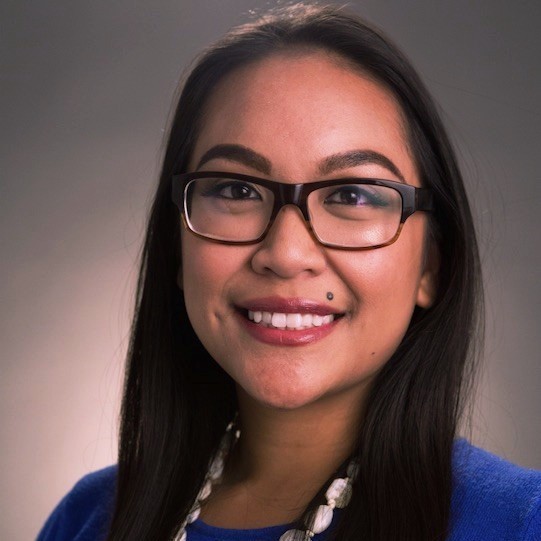
Jennifer Ferrer, PhD, ‘17
Senior Director, Data Solutions, Prognos Health
PhD in Biology (Northwestern)
What led you to your current career?
After graduating from Northwestern, I worked for Monopar Therapeutics. The founders of that company have very strong ties to CLP, which was how I initially connected with them. I was in a business development role there for about a year and a half, and it was a very exciting time. I was there when the company went public and when we initiated some of the late stage trials. After Monopar, I transitioned to Tempus AI where I had two roles over the course of three years. The first role was in alliance management where I managed life science partnerships that were leveraging Tempus real world oncology data sets. My second role was director of strategy and operations for the Clinical Trial Solutions team at Tempus where I supported strategic partnerships, sales and ‘go-to-market’ efforts. I was in that role for about a year before I transitioned to Prognos Health.
What are your job responsibilities?
Prognos sells physician alerts or trigger programs based on clinical laboratory data to pharma commercial teams that have a marketed, or soon to be marketed, product. I support the Prognos sales team in designing the appropriate data solution to support the client’s business goals. Essentially, we help clients identify physicians that are seeing patients of interest so that they can then educate those physicians to put appropriate patients on their products. I’m responsible for the oncology offering, so my day-to-day involves developing pricing strategy, data partner and customer relationship management, strategic planning and goal setting, and performance monitoring,
What do you like best about your career thus far?
Over the last five years since leaving Northwestern, I’ve discovered real enjoyment from being in customer facing roles where I can strategically leverage my scientific background and training. What excites me most about my current role — and has consistently been a highlight in my previous positions — is the opportunity to work closely with clients, particularly folks in the pharmaceutical industry or smaller biotechs. Very often, I’m talking to scientists on the other end. It reminds me of grad school a little bit in that some conversations are just geeking out about science, but I’m often reminded that these relationships and deals have the added complexity of business negotiations.
I do like that I’m still very much connected to the science and that I can leverage many of the training, tools and lessons from grad school. I spend a lot of time looking at FDA labels for marketed products, looking at papers that have been published about clinical trials that have had positive readouts, and trying to anticipate where the market’s going to go and which therapeutic areas or biomarkers are the hot topic right now. I try to understand the competitive landscape of those different products as well as the approaches that different companies take to developing a product.
How did the CLP training program help prepare you for your role?
First and foremost, CLP gave me invaluable opportunities to hone my communication skills through participation at different conferences, symposia and forums both at Northwestern and beyond. In my career, many of my roles have been in highly matrixed environments where you’re talking to both technical and non-technical folks. Learning how to communicate to different audiences, particularly when consensus is crucial to advancing a project, has been incredibly valuable. There’s a component of being able to communicate your science that mirrors the art of persuasion in selling — you’re trying to convince folks that what you’re doing is interesting, groundbreaking, that it’s significant and pushing the field forward. This skill is integral to my daily interactions.
CLP also gave me the greatest exposure to what careers in science could look like outside of academia. The program was super intentional about highlighting other ways of being a scientist that still make meaningful impact in industry, government and science-adjacent fields. If I hadn’t had such broad exposure to CLP advisory board members, for example, or if I hadn’t attended any number of career workshops that CLP had been offered to their students, I might not have considered or ventured to explore opportunities beyond academia.
What career advice would you give to current trainees?
One recurring theme that stood out while I was on campus for the career symposium was the imposter syndrome that many students expressed. It brought me back to my early grad school days where I felt like I had tricked people into believing that I could do a PhD. It totally resonated with me, and I empathize especially with the students that are a little bit closer to graduating and looking to market themselves in industry and saying, “I study drosophila. Why does anybody in industry care about that?” My advice to those students is to ignore those doubts because you absolutely have the skills necessary to be successful in industry. You just have to learn how to frame your experience, your story, and your successes a little bit differently.
That advice ties directly to the previous question on what I gained from the CLP training program, which was the training and ability to communicate effectively to broad audiences and to “sell” your science. So, I advis to keep honing that skill. Practice communicating your science to different audiences. Get yourself out of the Northwestern bubble and network intentionally with people that are in industry if that’s the direction you want to go. Figure out how to contextualize your science and what you bring to the table in ways that resonate with them and trust that the work that you’re doing today is valuable in the career you aspire to build.
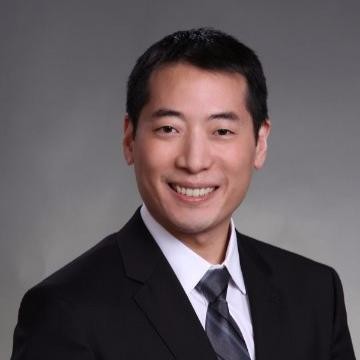
Eric J. Lee, PhD, ’16, JD
Patent Counsel, Gilead Sciences
PhD in Organic Chemistry (Northwestern), JD, (Harvard Law)
What led you to your current career?
I knew for the past two to three years of graduate school that I was heavily considering a career in patent law based on conversations I had with people with chemistry PhDs who switched to patent law. The first one was a former chemistry professor I met at a career conference that the CLP training program sent the trainees to. He told me what the career outlook was and what the career path and progression looked like and it all sounded really great.
My first job out of grad school was as a technical specialist, which is a patent agent trainee at the intellectual law firm, Finnegan, Henderson, Farabow, Garrett & Dunner. I really liked the work and took to it right away, which convinced me to attend law school to become a patent attorney.
[After working for Finnegan for three years, Eric attended Harvard Law School. The firm covered his cost of attendance.]
A lot of the traditional barriers to going to law school are mitigated or eliminated by going though this path. It’s not uncommon for firms to have some sort of law school sponsorship program for patent agents if they do a lot of this type of work.
I worked at Finnegan for the past eight years before recently starting a new position as patent counsel at Gilead in Foster City, CA.
What are your job responsibilities?
In terms of daily responsibilities, it really varies, but it all is centered around helping clients get and protect their inventions with patents, which is a process referred to as patent prosecution. Most of the work I do is helping patent applicants and inventors draft patent applications and get their applications through the patent office.
What do you like best about your job?
I like patent work because it does require a lot of technical knowledge, especially in patent prosecution. There are attorneys and firms out there who do patent work without having people on their team with technical expertise, but I think it really shows in the quality of their work and legal outcomes. This work utilizes the skills I developed in my PhD to understand the inventions that patent applicants are trying to protect.
How did the CLP training program help prepare you for your role?
In addition to having a strong technical background, one of the most important skills to have in patent law is to be able to communicate science well to non-specialists. Patent practice requires communicating with highly educated people, such as other lawyers or people who have a science background, but not necessarily in your field or the area of the technology that’s the center of the patent application you’re working on. I think being able to talk to very intelligent and diverse audiences with diverse backgrounds is one of the central things the CLP program teaches you to do — to get used to talking to those people and to also listen to those people.
What career advice would you give to current trainees?
Talking to people who have graduated and have ended up in positions that you might be interested in is the most important advice I would give. That’s the way that I found my particular field, but I think it goes for any kind of non-traditional field that you might want to pursue after a PhD. Those people are best situated to understand what you might need to know or what you might be going through or will go through. It’s also good for expanding your professional network, particularly in patent law which is a relatively niche field.
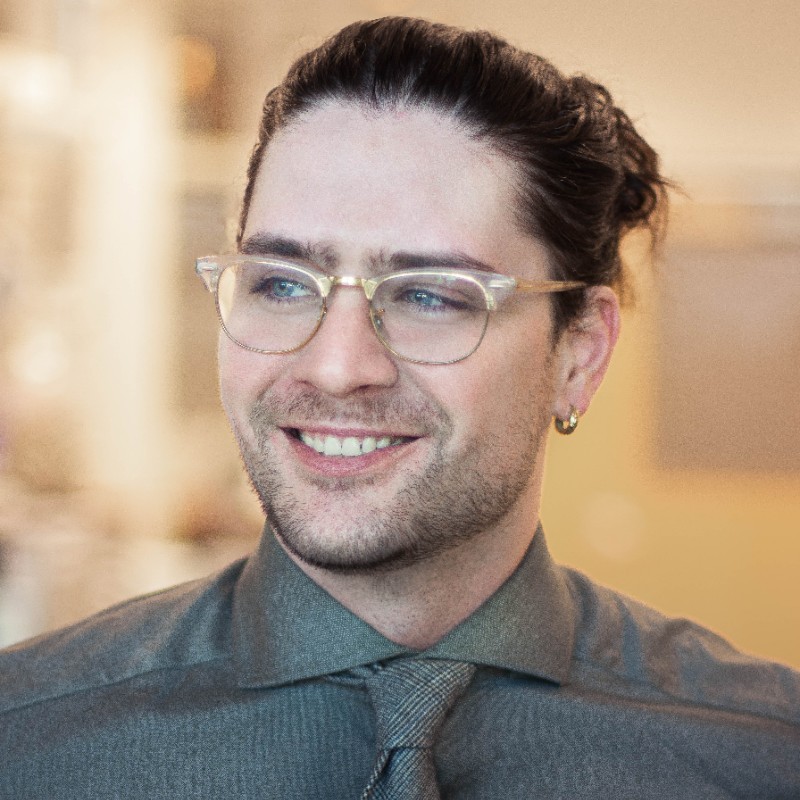
Tim Toby, PhD, ‘17
Group Leader, Drug Product Analytics Group Leader, Drug Product Analytics, Vaxcyte
PhD in Interdisciplinary Biological Sciences (Northwestern)
What led you to your current career?
Before I went to graduate school, I worked for the FDA in the Department of Pharmaceutical Analysis. It was located on the top floor of the Carnahan Courthouse in St. Louis where I went to college. You’d never know it was there. That’s where I started to learn analytical chemistry techniques and pharmaceutical analysis and I loved it. I decided to go to graduate school because that’s what my mentors all advised. My boss at the FDA, Michael Boyne, was one of Neil Kelleher’s graduate students and he said, “You like mass spec, you’re trying to learn it, so go to Neil’s group.”
I went to Neil’s group and got really into the technology. But when I graduated, I wanted to try something different, so I went to work for Michael again who was just starting up the laboratory component of a previously virtual company called Cour Pharmaceuticals Development Company, which had been spun out of the work going on in Stephen Miller’s group downtown. They asked if I would like to be scientist number one and help build the Cour development lab out from scratch. I was all in. There was no mass spec, no proteomics, nothing that I worked on in grad school. It was all polymer chemistry, biophysical measurements and nanoparticle-based drug delivery systems. It had nothing to do with anything that I did in grad school, which was a feature for me, and not a bug, as I was keen on learning new things and expanding my technical skillset.
Fortunately, as a CLP trainee, I was exposed to a lot of nanoparticles and biomaterials research, so I had the language down. I went on that journey for about two years helping Cour build out their first lab spaces as their first scientist, recruiting a full team for not just QC (quality control), analysis, synthesis, and manufacturing, but also for lab operations and management and other functions. About a year in, we built a clean room from scratch. I was one of the first Cour scientists in the astronaut bunny suit doing aseptic GMP (Good Manufacturing Practices) manufacturing of clinical trial material.
It was a great experience, then the pandemic hit, and diagnostic tests were really becoming extremely important in the industry and in society. I applied to a bunch of jobs and got offered one to help start the protein analysis team at Freenome, an oncology diagnostics company based in San Francisco. I was there for a little over a year and got recruited into a small company called DiscernDx which was also pioneering multi-omics diagnostics, but they were also exploring next generation AI readouts to parse all of this big data. This was my first time in an executive role, albeit at a very small company. I was hired in as the head of research and inherited a small team and basically managed the research component of a Bay Area start-up, fighting for funding and helping build pitch decks. I got all that experience learning the entrepreneurship part of it and seeing how a company starts, and then also seeing how a company ends because after about a year, the funding climate was really, really bad. Our product wasn’t coming together. We were pivoting a lot and couldn’t get the funding, so we eventually just had to phase the company out. Then I consulted in the bioanalytical space in pharma for a while with a close friend and colleague I had worked with at the FDA, Dr. Ashley Gucinski, while I figured out what I wanted to do long-term. A year ago, I got lucky and found a vaccine company called Vaxcyte that was looking for someone to help lead the lab-based group in analyzing their complex but exciting drug products that were moving through phase two and looking very promising for pneumonia.
What are your job responsibilities?
Right now, we’re working on some later-stage products, namely pneumonia conjugate vaccines to help infants and the elderly. The company’s on a really good trajectory. My team’s growing really fast and I get to learn the vaccine field, which as we all know is extremely important these days.
How did the CLP training program help prepare you for your role?
CLP helps with the interdisciplinary focus and understanding fundamentals across different fields. The multi-lab exposure, the focus on interdisciplinary work and collaboration – that was all extremely important especially when you’re transitioning into industry or a startup. CLP has a startup vibe where you have to wear multiple hats and understand multiple disciplines and be able to move fast, but also have a focus on innovation as opposed to what the textbook says. CLP also gives you the ability to be more translational — to take a tool that you develop and see where it can be applied in generating valuable new insights in health and disease.
What career advice would you give to current trainees?
I hope this isn’t too cliché, but first and foremost, it’s network, network, network. Meet people. I don’t think people realize that there’s such a social component to science. What I’ve learned working in government, academia, and now biotech and pharma, is that relationships, networking, and emotional intelligence are actually more important than publishing Nature papers because everything in the industry is so team focused. Most of my jobs and career choices have been facilitated by scientists or mentors that I’ve met through networking. This is something that any trainee can do at a personal level and grad school is the time to do it.
Feature image and story by Lisa La Vallee

